Meet the CMS Team
Meet the CMS Team
-
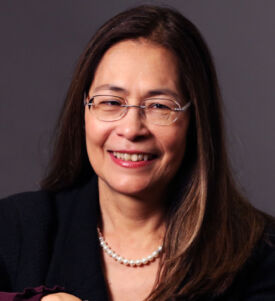 View BioRoxane GardnerExecutive Director
View BioRoxane GardnerExecutive Director
- Senior Director, Clinical Programs, Center for Medical Simulation, Boston, MA
- Director, Simulation Fellowship and International Scholars Program, Center for Medical Simulation, Boston, MA
- Director, Labor and Delivery Crisis Resource Management, Center for Medical Simulation, Boston, MA
- Executive Director, Center for Medical Simulation, Boston, MA
- Assistant Professor of Obstetrics and Gynecology Harvard Medical School, Boston, MA
- Associate Professor, Massachusetts General Hospital-Institute of Health Professions, Boston, MA
Roxane GardnerMD, MSHPEd, DScExecutive DirectorDr. Gardner is a board-certified Obstetrician-Gynecologist and Assistant Professor of Obstetrics, Gynecology and Reproductive Biology at Harvard Medical School. Since 1999, she has been a faculty member of the Department of Obstetrics and Gynecology at Brigham and Women’s Hospital, where she helped develop and co-directs a simulation-based perinatal team training and obstetrical safety drills program.
In 2002, Dr. Gardner joined CMS and has helped design, implement and co-direct a human simulation-based team training program for labor and delivery personnel as well as simulation instructor education. Patient safety, team training and simulation are the focus of her research.
-
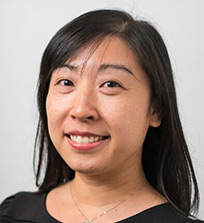 View BioGrace NgSenior Director, Faculty Development Program
View BioGrace NgSenior Director, Faculty Development Program
- Senior Director, Faculty Development Program, Center for Medical Simulation, Boston, MA
Grace NgPhD, CNM, RNSenior Director, Faculty Development ProgramGrace Ng, PhD, CNM, RN is the Senior Director of the Faculty Development Program. She was formerly the Nursing and Health Professions Director at the New York Simulation Center for the Health Sciences (NYSIM), a large simulation center affiliated with both NYU Langone Health and The City University of New York. She developed a passion for simulation since 2008, when she started using simulation for obstetrics interprofessional team training. Since then, she expanded her work to using simulation to transform culture in healthcare through experiential learning, debriefing, and reflective practice. Her current teaching focus is faculty development for simulation educators. She has taught extensively in simulation instructor courses in the US and overseas, and served as faculty at the Center for Medical Simulation in Boston, Massachusetts since 2011. As a dedicated leader in formal training in simulation, Grace developed one of the first longitudinal nursing simulation fellowships in 2014. Grace has authored multiple articles on teamwork and simulation. Her most recent research interests are focused on examining the role psychological safety in nursing clinical practice, as well as debriefing approaches of novice debriefers. She currently serves as an Associate Editor at the International Journal of Healthcare Simulation, and Simulation & Gaming: An Interdisciplinary Journal of Theory, Practice and Research.
Grace has been a nurse since 1998. Prior to devoting her work full time to simulation, she served as a professional development nurse educator at NYU Langone Health. She obtained her Nursing and Nurse-Midwifery degrees from Columbia University, her Post-Master’s Advanced Certificate in Nursing Education from Hunter-Bellevue School of Nursing at The City University of New York. In 2019, she completed her PhD in Nursing from the Graduate Center at The City University of New York.
-
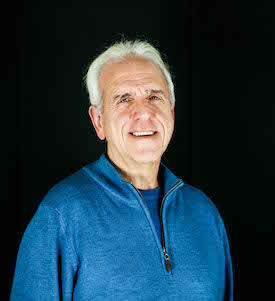 View BioGary RossiChief Operating OfficerGary RossiMBAChief Operating Officer
View BioGary RossiChief Operating OfficerGary RossiMBAChief Operating OfficerGary is a graduate of Northeastern University (BS in Physical Therapy) and Babson College (MBA). He previously worked at Brookdale Senior Living where he served in both operations and business development roles. He has also worked as a healthcare management consultant, and at organizations such as the Joslin Diabetes Center, Rehability Corporation, and Mariner Healthcare where he served as the Senior Vice President of its Outpatient Clinics Division.
-
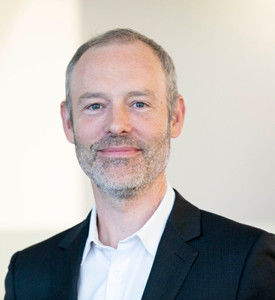 View BioChris RoussinSenior Director, Applied Learning for Performance and Safety (ALPS)
View BioChris RoussinSenior Director, Applied Learning for Performance and Safety (ALPS)
- Senior Director, Applied Learning for Performance and Safety (ALPS), Center for Medical Simulation
Chris RoussinPhDSenior Director, Applied Learning for Performance and Safety (ALPS)Chris Roussin, PhD, is Senior Director, Applied Learning for Performance and Safety (ALPS), at the Center for Medical Simulation, Associate Professor of Health Professions Education.
Chris creates partnerships within complex healthcare organizations to support sustainable and culture-changing programs based in experiential learning and positive communication, collaboration and feedback approaches. Chris led the original efforts to develop the Circle Up system of briefing, debriefing and peer support activities that has now been implemented at hospitals around the world. Before CMS, Chris served as Learning and Development Director for the Boston Children’s Hospital Simulator Program. His academic works on the subjects of teamwork, learning and psychological safety appear in top healthcare and management journals including Academic Medicine and Journal of Management.
-
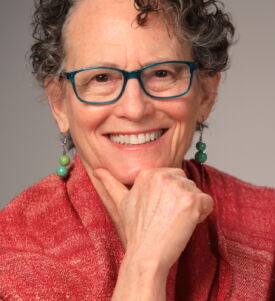 View BioJenny RudolphSenior Director of InnovationJenny RudolphPhDSenior Director of Innovation
View BioJenny RudolphSenior Director of InnovationJenny RudolphPhDSenior Director of InnovationJenny Rudolph, PhD is a life-long athlete who brings the joy of practice to learning in healthcare education, especially feedback, debriefing, and collaboration at point of care. Jenny is an organization behavior scholar on the faculty of Massachusetts General Hospital Department of Anesthesia Critical Care and Pain Medicine, and department of Anesthesia at Harvard Medical School.
The approach to reflective conversations known as “debriefing with good judgment” Jenny pioneered has helped health educators world-wide promote dynamic, honest, but non-threatening conversations. The “…with good judgment approach” pairs three key dichotomies to promote connection and learning: psychological safety and challenge in the learning environment; holding high standards and high regard for learners; and balancing advocacy and inquiry to share and elicit thought processes.
Jenny studied system dynamics at MIT Sloan School of Management, received a doctorate in organizational behavior from Boston College, was a National Science Foundation Fellow, and received a B.A. in sociology from Harvard College.
-
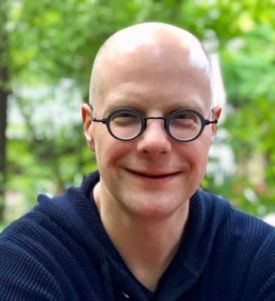 View BioWalter EppichProfessor of Work Integrated Learning Research, University of Melbourne, Melbourne, Victoria, Australia
View BioWalter EppichProfessor of Work Integrated Learning Research, University of Melbourne, Melbourne, Victoria, Australia
- Professor of Work Integrated Learning Research, University of Melbourne, Melbourne, Victoria, Australia
- Principal Faculty, Center for Medical Simulation
Walter EppichMD, MEd, PhD, FSSHProfessor of Work Integrated Learning Research, University of Melbourne, Melbourne, Victoria, AustraliaWalter Eppich, MD, MEd, PhD, FSSH is a Professor of Work Integrated Learning Research at the University of Melbourne in Melbourne, Victoria, Australia. He was previously Professor and Chair of RCSI SIM, the Centre for Simulation Education and Research, at
Royal College of Surgeons in Ireland (RCSI) University of Medicine and Health Sciences in Dublin, Ireland. With a clinical background in pediatric emergency medicine, Walter studies the intersections between simulation and workplace learning with a focus on interprofessional collaborative practice, team reflection, healthcare debriefing, and team adaptation. He earned a PhD in Medical Education from Maastricht University. He has co-authored over 100 peer-reviewed articles and book chapters. He collaborates with team and organizational psychologists to study team processes both in and outside of healthcare. In 2018, he traveled to Antarctica to perform ethnographic field observations and in-depth qualitative interviews to investigate how Antarctic research teams adapt to ever-changing conditions in extreme environments. His research program seeks to delineate the contribution of workplace talk and team interactions to learning and performance. -
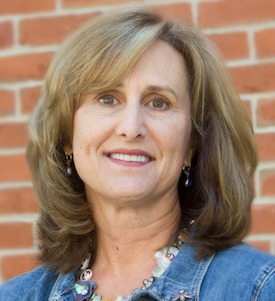 View BioMary FeyAssociate Director, Applied Learning for Performance and Safety Program
View BioMary FeyAssociate Director, Applied Learning for Performance and Safety Program
- Associate Director, Applied Learning for Performance and Safety Program (ALPS), Center for Medical Simulation, Boston, MA
Mary FeyPhD, RN, CHSE-A, ANEFAssociate Director, Applied Learning for Performance and Safety ProgramMary Fey has been working in the field of clinical simulation since 2007 and has been responsible for developing clinical simulation programs, integrating simulation into nursing curricula, and designing simulation labs. Her past work focused on faculty development for simulation educators as the Senior Director of Teaching and Learning, Simulation Educator Training Program and Principal Faculty at the Center for Medical Simulation in Boston, MA.
Dr Fey is a co-author of the Standard of Best Practice for Simulation: Standard VI, The Debriefing Process and Standard IX, Simulation Design. She has completed both qualitative and quantitative studies on debriefing and provides faculty development to interprofessional groups of simulation educators. In her work with the National League for Nursing (NLN) in Washington, DC, she co-authored the NLN Vision Statements: Teaching with Simulation and Debriefing Across the Curriculum. She is co-editor of the NLN Monograph Critical Conversations, a guide for nurse educators.
Lecturer, Harvard Medical School, Boston, MA
Dr. Fey serves on the Board of Directors of INACSL, where she holds the position of Vice President for Outreach. In her work with the National League for Nursing in Washington, DC, she co-authored the NLN Vision Statements: “A Vision for Teaching with Simulation” and “Debriefing Across the Curriculum”. She has published qualitative and quantitative studies on debriefing, and has co-authored several of the Standards of Best Practice, Simulation. She serves on the certification committee for the Society for Simulation in Healthcare.Dr. Fey speaks internationally on the topic of debriefing and the role of the educator in simulation based learning experiences. -
 View BioRoxane GardnerSenior Director, Clinical Programs
View BioRoxane GardnerSenior Director, Clinical Programs
- Senior Director, Clinical Programs, Center for Medical Simulation, Boston, MA
- Director, Simulation Fellowship and International Scholars Program, Center for Medical Simulation, Boston, MA
- Director, Labor and Delivery Crisis Resource Management, Center for Medical Simulation, Boston, MA
- Executive Director, Center for Medical Simulation, Boston, MA
- Assistant Professor of Obstetrics and Gynecology Harvard Medical School, Boston, MA
- Associate Professor, Massachusetts General Hospital-Institute of Health Professions, Boston, MA
Roxane GardnerMD, MSHPEd, DScSenior Director, Clinical ProgramsDr. Gardner is a board-certified Obstetrician-Gynecologist and Assistant Professor of Obstetrics, Gynecology and Reproductive Biology at Harvard Medical School. Since 1999, she has been a faculty member of the Department of Obstetrics and Gynecology at Brigham and Women’s Hospital, where she helped develop and co-directs a simulation-based perinatal team training and obstetrical safety drills program.
In 2002, Dr. Gardner joined CMS and has helped design, implement and co-direct a human simulation-based team training program for labor and delivery personnel as well as simulation instructor education. Patient safety, team training and simulation are the focus of her research.
-
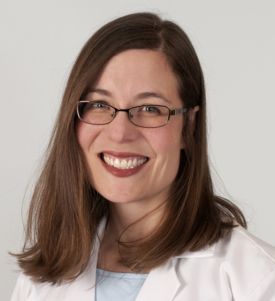 View BioRebecca Minehart
View BioRebecca Minehart
- Obstetric Anesthesiologist, Department of Anesthesia, Critical Care and Pain Medicine, Massachusetts General Hospital
- Assistant Professor of Anesthesia, Harvard Medical School
- Program Director, MGH Obstetric Anesthesia Fellowship, Massachusetts General Hospital
Rebecca MinehartMD, MSHPEdRebecca Minehart is an obstetric anesthesiologist at Massachusetts General Hospital, an Assistant Professor of Anesthesia at Harvard Medical School, and the Program Director for the MGH Obstetric Anesthesia Fellowship. She is an ardent education and patient safety advocate, and has been involved in international efforts to both research and promote best teamwork and communication practices, especially involving speaking up and giving feedback, on the labor and delivery unit, as well as during interprofessional operating room team training sessions using simulation. She is a recognized expert in educational techniques using simulation, and is a core teaching faculty member both at the Center for Medical Simulation in Charlestown, and also for the MGH Learning Laboratory, teaching interprofessional faculty and staff.
She received her Master’s in Health Professions Education from the MGH Institute of Health Professions in 2015, and was awarded the Partners Research in Medical Education Award in 2014 for her research on feedback. She has received grant funding for research in education from the Foundation for Anesthesia Education and Research as well as the Executive Committee on Teaching and Education at MGH. In addition, she is a member of the ASA’s Interactive Computer-Based Education Editorial Board, the Chair of the Society for Obstetric Anesthesia and Perinatology Fellowship Program Directors’ Committee, and the Obstetric Anesthesia Fellowship Program Director representative to SAAAPM.
Director, Anesthesia Programs
Director, Anesthesia Crisis Courses at Center for Medical Simulation -
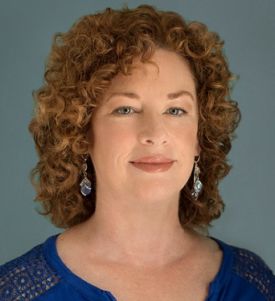 View BioKate Morse
View BioKate Morse
- Assistant Dean Experiential Learning, Drexel University College of Nursing and Health Professions
Kate MorsePhD MSN RN AGACNP-RetDr. Morse is the Assistant Dean, Experiential Learning and Innovation, College of Nursing and Health Professions, Drexel University, Philadelphia PA, USA. She is faculty in the Institute for Medical Simulation courses. Her clinical background includes critical care and she has practiced as an Adult Geriatric Acute Care Nurse Practitioner in a variety of settings. She has held various academic positions in the past, including Assistant Director Educational Leadership and International Programs at the Center for Medical Simulation; the Associate Chair of Nurse Practitioner Programs, Associate Clinical Professor in the College of Nursing and Health Professions at Drexel University, Associate Professor at the Drexel University College of Medicine and Director of the Acute Care Nurse Practitioner Program at Drexel University. Her research interests continue to focus on simulation, faculty development, speaking up and clinical feedback.
-
 View BioGrace NgSenior Director, Faculty Development Program
View BioGrace NgSenior Director, Faculty Development Program
- Senior Director, Faculty Development Program, Center for Medical Simulation, Boston, MA
Grace NgPhD, CNM, RNSenior Director, Faculty Development ProgramGrace Ng, PhD, CNM, RN is the Senior Director of the Faculty Development Program. She was formerly the Nursing and Health Professions Director at the New York Simulation Center for the Health Sciences (NYSIM), a large simulation center affiliated with both NYU Langone Health and The City University of New York. She developed a passion for simulation since 2008, when she started using simulation for obstetrics interprofessional team training. Since then, she expanded her work to using simulation to transform culture in healthcare through experiential learning, debriefing, and reflective practice. Her current teaching focus is faculty development for simulation educators. She has taught extensively in simulation instructor courses in the US and overseas, and served as faculty at the Center for Medical Simulation in Boston, Massachusetts since 2011. As a dedicated leader in formal training in simulation, Grace developed one of the first longitudinal nursing simulation fellowships in 2014. Grace has authored multiple articles on teamwork and simulation. Her most recent research interests are focused on examining the role psychological safety in nursing clinical practice, as well as debriefing approaches of novice debriefers. She currently serves as an Associate Editor at the International Journal of Healthcare Simulation, and Simulation & Gaming: An Interdisciplinary Journal of Theory, Practice and Research.
Grace has been a nurse since 1998. Prior to devoting her work full time to simulation, she served as a professional development nurse educator at NYU Langone Health. She obtained her Nursing and Nurse-Midwifery degrees from Columbia University, her Post-Master’s Advanced Certificate in Nursing Education from Hunter-Bellevue School of Nursing at The City University of New York. In 2019, she completed her PhD in Nursing from the Graduate Center at The City University of New York.
-
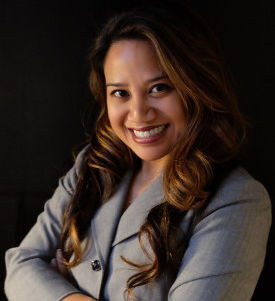 View BioJanice Palaganas
View BioJanice Palaganas
- Principal Faculty, Center for Medical Simulation
- Associate Director of Health Professions Education, MGH Institute of Health Professions
Janice PalaganasPhD, RN, NP, FSSH, ANEF, FAANDr. Palaganas is currently the Associate Director of Health Professions Education at MGH Institute of Health Professions and Principal Faculty at the Center for Medical Simulation (CMS) in Boston, Massachusetts. Dr. Palaganas has developed a passion in teamwork from her background as an emergency nurse, trauma nurse practitioner, director of emergency and critical care services, and faculty for schools of medicine, nursing, allied health, management, physician assistant program, and emergency medicine. As a behavioral scientist, Dr. Palaganas’ passion is in using healthcare simulation as a platform for interprofessional education (IPE) and has served as a committee member of the National Academy of Medicine’s (formerly the Institute of Medicine [IOM]) report on measuring the impact of IPE on practice. Dr. Palaganas’ primary role is to develop health profession educators in an IPE setting. She previously led CMS’s Instructor Course educating educators in simulation globally and is now developing the world’s first interprofessional virtual campus as the principal investigator of a board grant awarded by the Josiah Macy Jr. Foundation.
Dr. Palaganas has shaped the field of simulation, leading the development of the Society for Simulation’s (SSH) Accreditation and Certification Program and now the Chair of the SSH Credentialing Commission, urging the development of the recently released SSH dictionary, has authored seminal articles, has been involved in field-changing research including the National League for Nursing (NLN) study for high-stakes assessment using simulation and was editor-in-chief of SSH’s first and premier textbook, Defining Excellence in Simulation Programs.
-
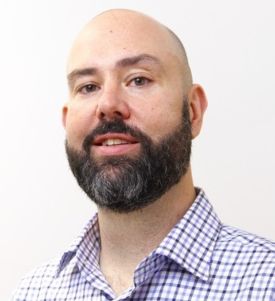 View BioGabriel Reedy
View BioGabriel Reedy
- Reader in Clinical Education, King’s College London
- Program Director of the Masters in Clinical Education, King’s College London
Gabriel ReedyMEd, PhD, CPsychol CSci AFBPsS FAcadMEd SFHEADr. Reedy is the Program Director for the Masters in Clinical Education program at King’s College London. He is a Chartered Psychologist and an Associate Fellow of the British Psychological Society, as well as a member of the American Psychological Association. Dr. Reedy is a Fellow of the Academy of Medical Educators, where he is also on the Governing Council and is Chair of the Education Committee. He is a Senior Fellow of the Higher Education Academy in the United Kingdom. He currently serves on the research committee of the Society for Simulation in Healthcare (SSH), and the co-Chair of the Simulation Committee for the Association for Medical Education in Europe (AMEE). He serves on the scientific committee of the Society in Europe for Simulation as Applied to Medicine (SESAM) as well as being Editor-in-Chief of Advances in Simulation, the academic journal of SESAM. He is also a fellow of the Academy of the Society for Simulation in Healthcare.
He completed his PhD in Cognition and Educational Psychology and a Masters in Curriculum and Instruction at the University of Washington.
-
 View BioChris RoussinSenior Director, Applied Learning for Performance and Safety (ALPS)
View BioChris RoussinSenior Director, Applied Learning for Performance and Safety (ALPS)
- Senior Director, Applied Learning for Performance and Safety (ALPS), Center for Medical Simulation
Chris RoussinPhDSenior Director, Applied Learning for Performance and Safety (ALPS)Chris Roussin, PhD, is Senior Director, Applied Learning for Performance and Safety (ALPS), at the Center for Medical Simulation, Associate Professor of Health Professions Education.
Chris creates partnerships within complex healthcare organizations to support sustainable and culture-changing programs based in experiential learning and positive communication, collaboration and feedback approaches. Chris led the original efforts to develop the Circle Up system of briefing, debriefing and peer support activities that has now been implemented at hospitals around the world. Before CMS, Chris served as Learning and Development Director for the Boston Children’s Hospital Simulator Program. His academic works on the subjects of teamwork, learning and psychological safety appear in top healthcare and management journals including Academic Medicine and Journal of Management.
-
 View BioJenny RudolphSenior Director of InnovationJenny RudolphPhDSenior Director of Innovation
View BioJenny RudolphSenior Director of InnovationJenny RudolphPhDSenior Director of InnovationJenny Rudolph, PhD is a life-long athlete who brings the joy of practice to learning in healthcare education, especially feedback, debriefing, and collaboration at point of care. Jenny is an organization behavior scholar on the faculty of Massachusetts General Hospital Department of Anesthesia Critical Care and Pain Medicine, and department of Anesthesia at Harvard Medical School.
The approach to reflective conversations known as “debriefing with good judgment” Jenny pioneered has helped health educators world-wide promote dynamic, honest, but non-threatening conversations. The “…with good judgment approach” pairs three key dichotomies to promote connection and learning: psychological safety and challenge in the learning environment; holding high standards and high regard for learners; and balancing advocacy and inquiry to share and elicit thought processes.
Jenny studied system dynamics at MIT Sloan School of Management, received a doctorate in organizational behavior from Boston College, was a National Science Foundation Fellow, and received a B.A. in sociology from Harvard College.
-
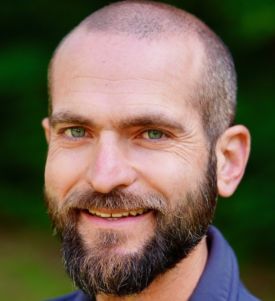 View BioLon SetnikAssociate Director, Clinical Programs
View BioLon SetnikAssociate Director, Clinical Programs
- Associate Director, Clinical Programs, Center for Medical Simulation
- Emergency Medical Physician, Concord Hospital
- Immediate Past President of Medical Staff, Concord Hospital
Lon SetnikMDAssociate Director, Clinical ProgramsDr. Setnik’s clinical duties include attending in the Emergency Department in Concord Hospital, a regional referral center and level 2 Trauma center as well as Critical Access Hospitals in rural New Hampshire. He has worked in simulation since 2013, most recently as the Medical Director of the Forrest D. McKerley Simulation and Education Center. He has led simulation programs with the NH Army National Guard, Paramedics, Family Medicine Residents, and hospital based teams including Obstetric, Trauma, Pediatric and Adult Code Blue, and Stroke. Most recently he has been involved in projects to improve the safety of teams performing intubation in COVID-19 suspected patients. As Immediate Past President of the Medical Staff he has contributed to a culture of safety, transparency and inclusiveness in organizational leadership. He will graduate from the MGH-IHP Masters in Medical Education Program in September 2022.
-
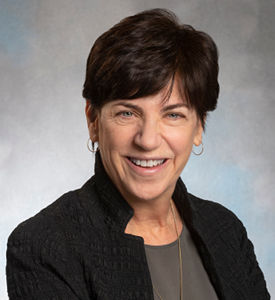 View BioJo Shapiro
View BioJo Shapiro
- Senior Educator, Center for Medical Simulation
- Consultant, Department of Anesthesia, Critical Care and Pain Medicine, Massachusetts General Hospital
- Associate Professor of Otolaryngology–Head and Neck Surgery, Harvard Medical School
Jo ShapiroMD, FACSDr. Shapiro is an associate professor of Otolaryngology Head and Neck Surgery at Harvard Medical School. She is a Principal Faculty member for the Center for Medical Simulation in Boston and a Consultant for the Massachusetts General Hospital Department of Anesthesia, Pain and Critical Care.
In 2008, she founded the Brigham and Women’s Hospital Center for Professionalism and Peer Support where she served as the director for over 10 years. During that time the Center became a model for national and international institutions seeking methods to enhance trust and respect and improve clinician wellbeing. She continues to assist organizations in developing specific programmatic approaches such as peer support, professionalism and wellbeing initiatives.
She is involved in global health medical education and training including Professor of Professional Behavior and Peer Support in Medicine through the academic track at Groningen University Medical Center in The Netherlands; Visiting Professor and Otolaryngology Residency Program Advisor for Mbarara University of Science and Technology (MUST) in Uganda; and having served as a member of the Israeli Commission for Higher Education International Committee for the Evaluation of Medical Schools in Israel. In 2019 she was awarded an Honorary Fellowship in the Royal College of Surgeons Ireland.
She served as chair of the Ethics and Professionalism Committee of the American Board of Medical Specialties and has held multiple educational leadership roles including: senior associate director of Graduate Medical Education for Partners HealthCare, founding scholar of the Academy at Harvard Medical School, and president of the Society of University Otolaryngologists. She was one of BWH’s first woman division chiefs. She serves on the faculty of the Harvard Leadership Development for Physicians and Scientists. She was a faculty member of the Department of Surgery at BWH for over 35 years; her surgical expertise was in treating adults with oropharyngeal dysphagia. She was named as a finalist for the Schwartz Center Compassionate Caregiver Award. In 2019, Harvard Medical School gave her the Shirley Driscoll Dean’s Award for the Enhancement of Women’s Careers.
Dr. Shapiro received her BA from Cornell University and her MD from George Washington University Medical School. Her general surgery training was at UC San Diego and then UCLA. She did her otolaryngology residency at Harvard, followed by a year of a National Institute of Health Training Grant Fellowship in swallowing physiology. She is married to an internist, and they have three children.
-
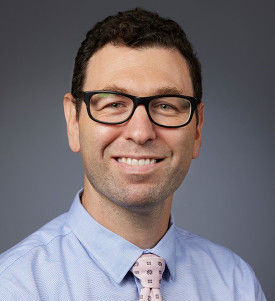 View BioDemian Szyld
View BioDemian Szyld
- Principal Faculty, Center for Medical Simulation, Boston, MA
- Attending Physician, Department of Emergency Medicine, Boston Medical Center Boston, MA
- Director of Innovation in Education, Boston Medical Center Boston, MA
Demian SzyldMD, EdMDemian Szyld, MD, EdM is a faculty member at the Center for Medical Simulation. He is the Director of Innovation in Education and an Emergency Physician at the Boston Medical Center (BMC). Demian trained in Emergency Medicine at the University of Pennsylvania and was the first Simulation and Education Fellow at the STRATUS Simulation Center at BWH. During that time he completed a Masters in Education at the Harvard Graduate School of Education. From 2011 to 2016 he was the Medical Director of NYSIM, the simulation center of the NYU School of Medicine and the City University of New York where he established a successful Fellowship. Dr. Szyld (pronounced “shield”) is actively involved in the Society for Simulation in Healthcare and has chaired the Formal Training Affinity Group, led the Affiliations Committee and served as an Accreditation Site Reviewer and completed a term on the Board of Directors (2016-2019). Demian grew up in Buenos Aires, Argentina and is fluent in Spanish and English.
-
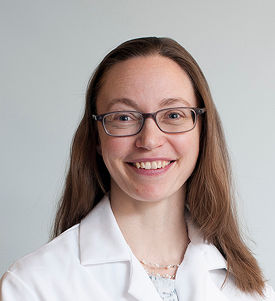 View BioLia TronDirector, Anesthesia Programs
View BioLia TronDirector, Anesthesia Programs
- Attending Anesthesiologist, Massachusetts General Hospital, Boston, MA
- Chair, Departmental Quality and Safety Improvement Committee, Massachusetts General Hospital, Boston, MA
Lia TronMD, MPHDirector, Anesthesia ProgramsDr. Tron has been an attending anesthesiologist at the Massachusetts General Hospital (MGH) and on the faculty at Harvard Medical School since 2015. Her clinical work is adult OR, non-OR and regional anesthesia. She is the current chair of the departmental Quality and Safety Improvement Committee; and has a long-standing interest in strategies the promote effective teamwork and enhance interprofessional communication. During the COVID surge she led a quality improvement team effort to understand the pandemic experience of anesthesia team members, share those, and implement quality improvement changes, including implementation of Circle Up – a system created by CMS faculty for psychological support and daily workflow adaption during the Covid-19 pandemic and beyond. Currently she is working on a departmental effort to understand and improve production pressure in the perioperative environment. Prior to joining the team at MGH, she was a staff anesthesiologist for United Anesthesia Services in Pennsylvania, and before that was on the faculty in the Neuro Anesthesia Division at Johns Hopkins Hospital.
-
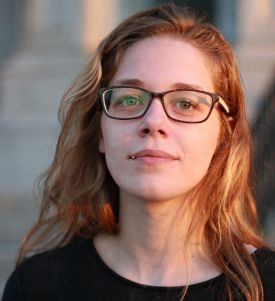 View BioJennifer BourqueEducation Coordinator
View BioJennifer BourqueEducation Coordinator Jennifer BourqueBAEducation Coordinator
Jennifer BourqueBAEducation CoordinatorJen Bourque is the Education Coordinator at the Center for Medical Simulation and a reading and writing tutor in her free time. Previously, Jen worked as a Program Assistant at Massachusetts Continuing Legal Education, working to organize their course offerings. She is passionate about music and literature, and she enjoys playing guitar and writing creative nonfiction. She is a graduate of Syracuse University (BA in English) and is working on her MA in English at Boston College.
-
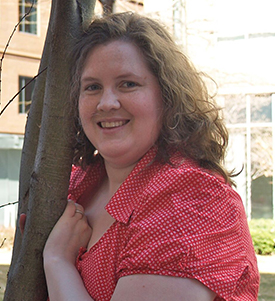 View BioLaura Gay MajerusAssistant Director, Business OperationsLaura Gay MajerusMEdAssistant Director, Business Operations
View BioLaura Gay MajerusAssistant Director, Business OperationsLaura Gay MajerusMEdAssistant Director, Business OperationsLaura is a graduate of Ithaca College, where she received her Bachelor of Arts in Biochemistry with a minor in Mathematics. She completed the Master of Instructional Design Program at the University of Massachusetts-Boston in 2012. Laura has prior experience in sales, marketing, customer service and technical writing.
Her previous position was as the Action Learning Program Coordinator at the M.I.T. Sloan School of Management, where she provided program management and administrative support for the Action Learning courses and played an active role in bringing new technology to the classroom as well as training faculty and staff in its use.
-
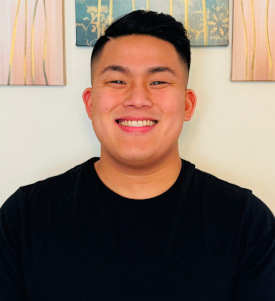 View BioSamuel HuangSimulation Operations Technician
View BioSamuel HuangSimulation Operations Technician Samuel HuangSimulation Operations Technician
Samuel HuangSimulation Operations TechnicianSamuel Huang is a Simulation Operations Technician at the Center for Medical Simulation and a volunteer AV Technician in his free time. Previously, Sam worked as a District Manager for AT&T Retail Stores managing over 14 locations within the New England region. He is passionate about Fitness and Nutrition, and he enjoys basketball and Jiu-Jitsu during his free time. Sam is currently working to complete his BA in Biblical Studies and Counseling.
-
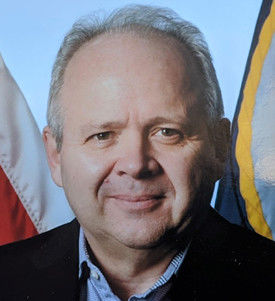 View BioMark JonesDirector, Simulation Technical Operations
View BioMark JonesDirector, Simulation Technical Operations
- Director, Simulation Technical Operations, Center for Medical Simulation, Boston, MA USA
Mark JonesCHSOS/CHSEDirector, Simulation Technical OperationsMark Jones is a graduate of Rhode Island College (BA in Communications Technology) and a veteran of the US Air Force. He has more than fourteen years of medical simulation experience in multiple technical roles. He previously worked at the Lifespan Medical Simulation Center and before coming to CMS he worked at the Naval Undersea Medical Institute. Prior to entering the field of medical simulation, he spent many years as an Audiovisual Specialist and has extensive experience in live event and media production.
-
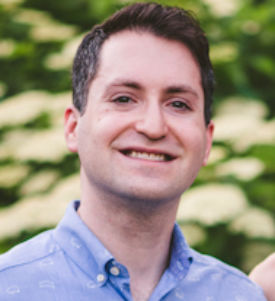 View BioJames LipshawAssistant Director, Instructional Design + Media
View BioJames LipshawAssistant Director, Instructional Design + Media
- Assistant Director of Instructional Design + Media, Center for Medical Simulation
James LipshawMFA, EdMAssistant Director, Instructional Design + MediaJames is a graduate of Stanford University (BA), Boston University (EdM), and the Rhode Island School of Design (MFA). Prior to joining CMS as an Instructional Designer, James was the Founding Visual Arts Teacher at KIPP Academy Boston, and a sixth grade ESL teacher at the Edmond P. Talbot Innovation Middle School in Fall River, Massachusetts. He served two years as a Teach for America Massachusetts Corps Member.
-
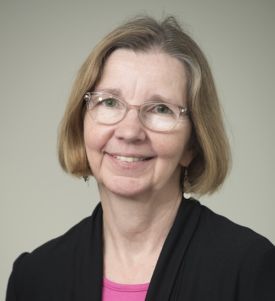 View BioAnn MullenProgram Manager, Faculty Development Program
View BioAnn MullenProgram Manager, Faculty Development Program
- Program Manager, Institute for Medical Simulation, Center for Medical Simulation
- President, Foundation for Healthcare Simulation Safety
Ann MullenRN, MSN, CHSEProgram Manager, Faculty Development ProgramAnn Mullen, MSN, RN, CHSE, is the Program Manager of the Faculty Development Program at the Center for Medical Simulation (CMS). Prior to joining CMS, Ann was the Program Manager of the Shipley Medical Simulation Center at Newton-Wellesley Hospital. Ann was responsible for program planning, faculty training and ongoing faculty development. She has over 30 years of experience in critical care nursing and staff education.
Ann received a Master of Science in Nursing at Regis College. Her interests include faculty development, debriefing and simulation safety.
-
 View BioGary RossiChief Operating OfficerGary RossiMBAChief Operating Officer
View BioGary RossiChief Operating OfficerGary RossiMBAChief Operating OfficerGary is a graduate of Northeastern University (BS in Physical Therapy) and Babson College (MBA). He previously worked at Brookdale Senior Living where he served in both operations and business development roles. He has also worked as a healthcare management consultant, and at organizations such as the Joslin Diabetes Center, Rehability Corporation, and Mariner Healthcare where he served as the Senior Vice President of its Outpatient Clinics Division.
-
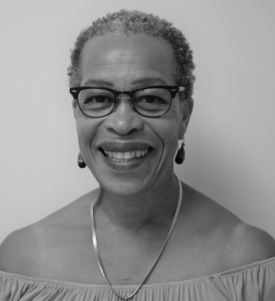 View BioRhonda YoungAdministrative Coordinator
View BioRhonda YoungAdministrative Coordinator Rhonda YoungAdministrative Coordinator
Rhonda YoungAdministrative CoordinatorMs. Young joined CMS as Administrative Staff Assistant in 2001 and assumed the role of Coordinator in 2010. She has a Bachelor of Applied Science from Emmanuel College in Boston and has more than 20 years of experience in healthcare. Prior to joining CMS, she was the Team Leader in the Obstetrics & Gynecology Department at Massachusetts General Hospital.
-
Melanie BarlowAustralian Catholic University+
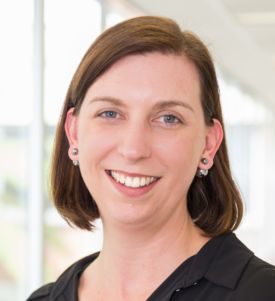
- Academic Lead: Specialist learning environments and simulation, Australian Catholic University, Brisbane, QLD Australia
- Honorary Fellow, Mater Research Institute-UQ, School of Medicine, South Brisbane, QLD Australia
- Executive Committee member, Australian Society for Simulation in Healthcare (ASSH)
Melanie BarlowPhD, MSN, RNAustralian Catholic UniversityMelanie Barlow is a healthcare leader and simulation specialist who has a passion for using experiential education to help improve quality of care. With 18 years’ experience in education. As a Registered Nurse with a Master’s in Intensive Care Nursing and a postgraduate debree in Education, Leadership and Management, she understands the importance of different health professionals learning with, from and about each other. She is currently the Academic Lead: Specialist learning environments and simulation at Australian Catholic University in Brisbane, QLD Australia. Previously, she was the Education Programs Manager at Mater Education, with more than 10 years’ experience in the delivery of interprofessional simulation education. Melanie has also been an Executive Committee member for the Australian Society for Simulation in Healthcare (ASSH) and a member of the Queensland Simulation Advisory Committee.
Melanie’s particular interest is in healthcare communication and studying how we receive messages and the impact receivership has on clinical communication behaviour. She is a highly-motivated person who has led interprofessional teams to use simulation in innovative ways; to help strengthen and enhance individuals, teams and whole health systems.
-
Stephanie BarwickMater Education+
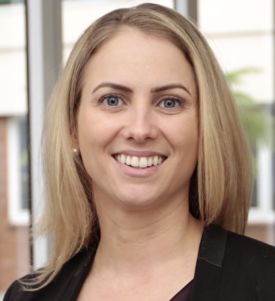
- Acting Director of Simulation, Mater Education
Stephanie BarwickRNRM, MAdNPMater EducationStephanie is the Acting Director of Simulation at Mater Education, Brisbane, Australia. Stephanie is both a Registered Nurse and Registered Midwife. She has a combined passion for critical care nursing and simulation-based education. Stephanie has spent the last 3 years implementing an organisational wide in-situ simulation program and spent the beginning of 2018 leading the educational development of the Speaking With Good Judgement Program.
Stephanie completed a six month fellowship with the Center for Medical Simulation in 2017 and is further developing her expertise in simulation undertaking research at Bond University looking at methods to better implement in situ simulation and its impacts upon the healthcare consumer.
-
Richard BlumBoston Children's Hospital+

- Director, Simulation Education Training
- Medical Director, Post Anesthesia Care Unit
- Senior Associate in Perioperative Anesthesia
- Assistant Professor of Anesthesia, Harvard Medical School
Richard BlumMD, MSE, FAAPBoston Children's HospitalDr. Blum is a pediatric anesthesiologist at Boston Children’s Hospital. He attended the University of Pennsylvania School of Medicine followed by an internship in Pediatrics at the University of Washington School of Medicine/Children’s Hospital and Regional Medical Center and by fellowships in Pediatric Cardiac and General Pediatric Anesthesia at Tufts-New England Medical Center/Boston Floating Hospital for Infants & Children and Adult & Pediatric Cardiac Anesthesia at Massachusetts General Hospital/Harvard Medical School.
Dr. Blum is the Principal Investigator of a research study, Assessing the Performance of First Year Anesthesia Residents to Ensure Basic Competence, which has been funded by a grant from the Harvard School of Medicine’s Department of Anesthesia, the Anesthesia Patient Safety Foundation and The Cathedral Fund. The long-term goal of this project is to have an effective, objective, credible, ongoing process for evaluation of anesthesia residents’ clinical competencies, ensuring that no resident graduates from any program not meeting the levels of performance that are sufficient to ensure an acceptable level of patient safety.
The research team is utilizing medical simulation to evaluate residents on performance; the program will attempt to identify anesthesia residents in need of remediation early in their training programs. They have created a set of standards and criteria to test the competency of Harvard-affiliated anesthesia residents and teach them to practice safer medicine, reducing medical mistakes as well as patient complication and death. They foresee developing standards and criteria that can be adapted to each medical specialty to enhance patient safety on a large scale; they believe this education will increase overall patient safety among anesthesia residents nationwide.
-
Gary BrennerMassachusetts General Hospital Pain Center+
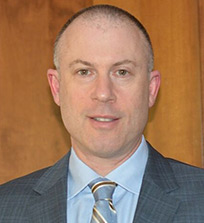
- Director, MGH Pain Medicine Fellowship
Gary BrennerMD, PhDMassachusetts General Hospital Pain CenterDr. Brenner currently sees patients at the Massachusetts General Hospital Pain Center, where he is the Director of the MGH Pain Medicine Fellowship. He is an Assistant Professor in Anesthesia at Harvard Medical School. He also conducts neuroscience research that investigates mechanisms of pain hypersensitivity. He has authored more than 30 articles, reviews, chapters and abstracts on the pathophysiology of pain, basic pain mechanisms and immune function, and clinical approaches to chronic pain. Dr. Brenner currently has several national leadership positions related to pain medicine education/training.
-
Clément BuléonUniversity Hospital of Caen+
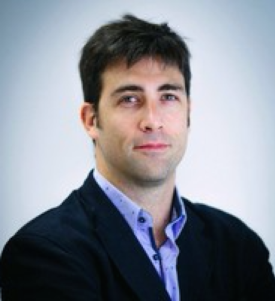
- Anesthesiologist and Intensive Care Doctor at the University Hospital of Caen
- Senior and Executive Director of Normandy Simulation in Healthcare (NorSimS) at the University Hospital of Caen
Clément BuléonMD, MScUniversity Hospital of CaenClément Buléon is anesthesiologist and intensive care doctor, senior and executive director of the simulation center Normandy Simulation in Healthcare (NorSimS) at the University Hospital of Caen, France. In 2009, he initiated the development of the simulation center of the University Hospital of Caen and, since then, he has been coordinating the initial and ongoing simulation training for anesthesiologists, intensivists, nurse anesthetists, and emergency teams. He participates in the development of simulation for other specialties and he is involved training of trainers in simulation in France, Europe and USA. Clément Buléon is a member of the Board of Directors of the French Speaking Simulation Society in Healthcare (SoFraSimS) for which he also chairs the Scientific and Research Committee. He has completed a one year International and Research Fellowship at Center for Medical Simulation in Boston (USA) in 2019. He is interested in research and innovation in simulation and involved in international research projects and collaborations. Clément Buléon will defend his PhD on the “Role of simulation in training and assessment in anaesthesia and intensive care” in 2021.
-
Albert ChanPrince of Wales Hospital+
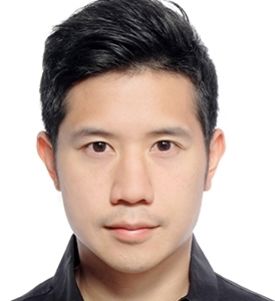
- Associate Consultant Department of Anaesthesia and Intensive Care, Prince of Wales Hospital
Albert ChanMBBS, FHKCA, FHKAM, FANZCAPrince of Wales HospitalDr. Albert Chan MBBS, FHKCA, FHKAM (Anaesthesiologist), FANZCA is Specialist in Anaesthesiology, Sub-specializing in Cardiac Anaesthesia, Associate Consultant, Department of Anaesthesia and Intensive Care, Prince of Wales Hospital and Clinical Assistant Professor (Honorary), Chinese University of Hong Kong, Hong Kong and is currently a Masters of Health Professions Education (MHPE) student at University of Maastricht.
From the clinical end, he is focusing on Perioperative medicine, and have been actively engaging various specialties to jointly improve the patients’ Perioperative outcome. He is also working on a Smart Hospital project — Perioperative medicine application — that will hope to improve the patients’ Perioperative experience. On the simulation front, he is mostly involved in translational simulation in his department. The most recent project is in simulation to enhance staff capacity for management of COVID patients during high risk procedures. The next project will be testing out the new information system prior to implementation.
His MHPE focus is on how residents process feedback in the workplace, and to identify any barriers to feedback processing that can be resolved with educational programs. This is particularly important considering the cultural implications of implementing a feedback-based training program amongst residents. Another area of focus is using clinical events debriefing to enhance team competence and improve clinical processes.
-
Jeffrey CooperHarvard Medical School+
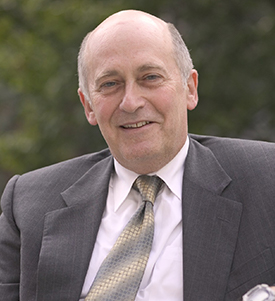
- Professor of Anesthesia, Harvard Medical School, Massachusetts General Hospital
- Member of the Affiliated Faculty of the Harvard-MIT Division of Health Sciences and Technology, Massachusetts Institute of Technology Health Sciences and Technology
- Executive Director, emeritus, Center for Medical Simulation
- Faculty, Center for Medical Simulation
Jeffrey CooperPhDHarvard Medical SchoolJeffrey B. Cooper, PhD, is the founder and Executive Director emeritus of the Center for Medical Simulation, which is dedicated to the use of simulation in healthcare as a means to improve the process of education and training and to avoid risk to patients. He is also Professor of Anesthesia at Harvard Medical School. He received his BS in Chemical Engineering and MS in Biomedical Engineering from Drexel University in 1968 and 1970 respectively and completed a PhD in Chemical Engineering at the University of Missouri in 1972.
Starting soon thereafter with the Bioengineering Unit in the Department of Anesthesia at Massachusetts General Hospital (MGH), he led the team that conducted seminal studies of critical incidents and human error in anesthesia. During the same time, he was leading a team that developed one of the first microprocessor-based medical technologies, the Boston Anesthesia System, aimed at integrating functions for the ultimate purpose of reducing human and system errors. Both of these efforts have catalyzed changes in anesthesia practice in the ensuing years.
In April, 2009, Dr. Cooper retired as Director of Biomedical Engineering for the Partners HealthCare System Inc., a technology development and service department that he organized and led for 15 years. Dr. Cooper was a lead member of the group that created the first safety-related standards for anesthesia, equivalent versions of which have since been adopted in the U.S. and throughout the world. He is a co-founder of the Anesthesia Patient Safety Foundation (APSF), serving continuously on its Executive Committee and for 13 years as Chairman of its Committee on Scientific Evaluation.
He is now an APSF Executive Vice President. He serves on the Board of Governors of the National Patient Safety Foundation and founded its Research Program, which he chaired for seven years. Dr. Cooper is one of the pioneers in diffusion and innovation in healthcare simulation. He has led CMS to become one of the premier simulation programs in the world. Among the more innovative programs he has created or co-developed are the Institute for Medical Simulation, live, interactive simulation video-teleconferencing and the novel Healthcare Adventures (a program for training healthcare administrators and leaders in teamwork via realistic simulation). He has mentored the faculty of CMS since its inception and has stimulated, participated in and advised on various research projects.
Dr. Cooper has been awarded several honors for his work in patient safety, including the 2003 John M. Eisenberg Award for Lifetime Achievement in Patient Safety from the National Quality Forum and the Joint Commission on Accreditation of Healthcare Organizations and the 2004 Lifetime Achievement Award from the American Academy of Clinical Engineering. The Department of Anesthesia and Critical Care of the MGH recently established the Jeffrey B. Cooper Patient Safety award in his honor.
-
Ignacio del MoralHospital virtual Valdecilla+
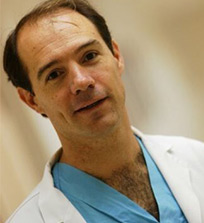
- Director Ejecutivo, Hospital virtual Valdecilla, España
- Especialista en Anestesiología
- Research Fellow en Simulación Clínica, Harvard Medical School
- Faculty, Institute for Medical Simulation, Boston, MA, USA
Ignacio del MoralMD PhDHospital virtual ValdecillaIgnacio del Moral is a specialist in Anesthesiology and has his doctorate from Cantabria University, Spain. He worked for 15 years at Valdecilla University Hospital in Santander in the Trauma area. In 1997 he began working in the simulation field designing programs for Crisis Resource Management. He is presently the Executive Director at Hospital virtual Valdecilla. He received a research fellowship in simulation (2009-2010) from the Institute for Medical Simulation and Harvard Medical School.
Founding President of the Spanish Society for Simulation in Healthcare, he is committed to improving patient safety and clinical education using simulation. To advance these goals, he advises simulation leaders in Spanish-speaking countries with strategic management, leadership development and institution building for their simulation programs.
-
Maureen HemingwayMassachusetts General Hospital+

- Clinical Nurse Specialist (OR)
- Massachusetts General Hospital
Maureen HemingwayRN, CNS, MHAMassachusetts General HospitalMaureen Hemingway has more than 30 years of experience in perioperative nursing. She is currently the Clinical Nurse Specialist at Massachusetts General Hospital in Boston. She received her BS in Nursing from University of Massachusetts-Dartmouth and her Master’s in Health Administration from St. Joseph’s College in Maine. She has experience caring for surgical patients and has held leadership positions within perioperative nursing. She has been working in collaboration with the Center for Medical Simulation for several years.
-
Sarah JanssensMater Group+
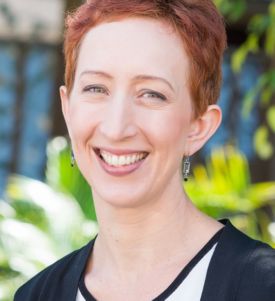
- Senior Obstetrician and Gynaecologist, Mater Mothers’ Hospital, Brisbane, Australia
Sarah JanssensMBBS, FRANZCOGMater GroupDr Sarah Janssens is a Senior Obstetrician and Gynaecologist at Mater Mothers’ Hospital, Brisbane, Australia. Her interests include procedural simulation, interprofessional team based and in-situ simulation. She has completed a 6 month fellowship at the Center for Medical Simulation in Boston and Supervised Mater’s Simulation Fellowship program as the Clinical Simulation Director. Sarah’s main research interest is leadership in healthcare emergency teams and her focus is on the application of evidence based teamwork practices to maternity emergency response teams. Sarah is Chair of the Royal Australian and New Zealand College of Obstetricians and Gynaecologist’s Simulation Training Advisory Group and she enjoys developing and delivering simulation faculty development courses.
-
José M MaestreValdecilla virtual Hospital+

- Director del Curso IMS en español
- Director Docente, Hospital virtual Valdecilla, España
- Especialista en Anestesiología
- Harvard Macy Scholar
- Faculty, Institute for Medical Simulation, Boston, MA, USA
José M MaestreMD, PhDValdecilla virtual HospitalDr. Maestre received his Doctorate in Medicine and Surgery from the University of Cantabria, Spain. He is an Attending Physician in the Division of OB/GYN and Pediatric Anesthesia at Valdecilla University Hospital. He serves as Education Director at Valdecilla virtual Hospital, a simulation center in Santander, Spain. He is a Harvard Macy Scholar and Director of the Spanish Simulation Instructor Courses at the Center for Medical Simulation.
He is member of the Faculty Development Committee of the Consortium of American College of Surgeons’ Accredited Education Institutes and member of the Clinical Simulation Working Party of the Anesthesia and Critical Care Spanish Society. He is especially interested in faculty development and simulation as a tool to facilitate organizational change.
-
Christine MaiMassachusetts General Hospital+
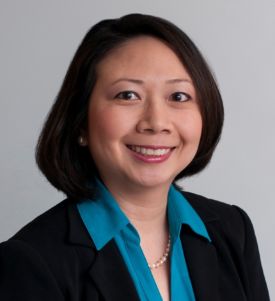
- Pediatric Anesthesiologist, Massachusetts General Hospital (MGH)
- Assistant Professor in Anesthesia, Harvard Medical School
- Program Director of Pediatric Anesthesia Fellowship (MGH)
- Director of Education in the Pediatric Anesthesia Division (MGH)
Christine MaiMD, MS-HPEDMassachusetts General HospitalChristine Mai is a pediatric anesthesiologist at Massachusetts General Hospital (MGH). She is an Assistant Professor in Anesthesia at Harvard Medical School. She is the Program Director of the Pediatric Anesthesia Fellowship and the Director of Education in the Pediatric Anesthesia Division at MGH. A native of Boston, she completed her medical school education at Boston University School of Medicine and her anesthesia residency training at Boston Medical Center. She is fellowship trained in pediatric anesthesia at Johns Hopkins University and after a year on faculty at Hopkins, she joined the Pediatric Anesthesia Division at MGH. Dr. Mai has a Masters degree in Health Professions Education from the MGH Institute of Health Professions with a concentration in simulation education. She is a faculty for the Harvard Macy Institute HCE 2.0 technology course and the Post-Graduate Trainee course, as well as faculty in the Pediatric Anesthesia MOCA simulation course at the Society for Pediatric Anesthesia. Her scholarly interests are in simulation education, curriculum development, medical education research, history in anesthesia, and health and wellness initiatives.
-
Richard MarnBlue Pacific Medical Simulation+
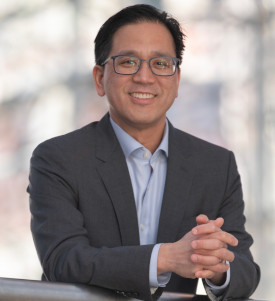
- Chief Executive Officer & Program Director, Blue Pacific Medical Simulation, New York, NY
- Medical Director, New York Medical Anesthesia, New York, NY
- Podcast Host, Health Careers with Dr Marn, New York, NY
- Faculty, Center for Medical Simulation, Boston, MA, USA
Richard MarnMDBlue Pacific Medical SimulationDr. Richard Marn has been a double board-certified anesthesiologist and pediatric anesthesiologist for 17+ years. He has worked for NYU, Bellevue, John Hopkins, and Mt Sinai Hospitals. He went into private practice in 2016, specializing in office-based pediatric dental sedations.
His wife is a pediatric dentist and they have worked together extensively to address the unique problems all dentists face during medical emergencies. They collaborated with Center for Medical Simulation (CMS) to develop an innovative EP program. Dr. Marn also speaks and teaches about medical emergency preparedness and safe dental sedation practices for dental teams.
Blue Pacific Medical Simulation website
New York Medical Anesthesia website -
Brad MorrisonBrandeis International Business School and MIT Sloan School of Management+
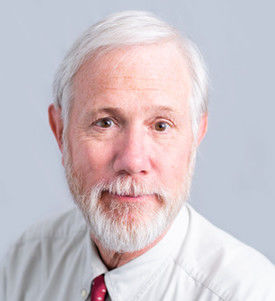
- Associate Professor of Management, Brandeis International Business School
- Senior Lecturer, Leaders for Global Operations Program, MIT Sloan School of Management
- Faculty, Center for Medical Simulation
Brad MorrisonPhD, MBABrandeis International Business School and MIT Sloan School of ManagementBrad Morrison is an Associate Professor at Brandeis International Business School, and a Senior Lecturer at MIT Sloan School of Management’s Engineering Systems Division. He is currently a faculty member at the Center for Medical Simulation.
A scholar in organizational theory and system dynamics, he studies problems that are rooted in the interactions between human behavior and the “physics” of the systems in which we work, such as operating rooms, emergency departments and factory shop floors. He holds a PhD in Management (System Dynamics and Organization Studies) from the Sloan School of Management at MIT and an MBA (Finance) from the University of Chicago Graduate School of Business.
-
Ivette MotolaUniversity of Miami Miller School of Medicine or Gordon Center for Simulation and Innovation in Medical Education+
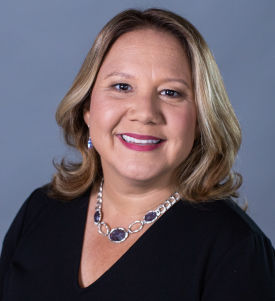
- Associate Professor of Emergency Medicine, the University of Miami Miller School of Medicine, Miami, FL
- Assistant Director, the Gordon Center for Simulation and Innovation in Medical Education, Miami, FL
- Director of the Prehospital and Emergency Training Division (PETD), the Gordon Center for Simulation and Innovation in Medical Education, Miami, FL
- Faculty, Center for Medical Simulation, Boston, MA, USA
Ivette MotolaMD, MPH, FACEP, FSSHUniversity of Miami Miller School of Medicine or Gordon Center for Simulation and Innovation in Medical EducationDr. Motola is Associate Professor of Surgery, Division of Emergency Medicine at the University of Miami Miller School of Medicine, Associate Director of the Gordon Center for Simulation and Innovation in Medical Education and has served as its Director of the Prehospital and Emergency Training Division for the past 15 years.
Dr. Motola has a special interest in developing curricula for prehospital and hospital‐based healthcare professionals and the application of simulation and other technologies to emergency medical education. She has led quality improvement initiatives at the hospital level in response to emergencies by implementing rapid response team training and in‐situ simulation. She also has expertise in interprofessional education and team training. Dr. Motola has served as PI or Co‐PI on multiple grants from the National Institutes of Health, the Department of Defense, the Florida Department of Health, and several foundations. Her research interests include effective use of simulation and technology for skills acquisition and retention, team training, interprofessional education, medical decision‐making in crisis situations, program evaluation, and assessment.
Dr. Motola received her undergraduate degree from Columbia University and received her medical degree from the University of Rochester School of Medicine and Dentistry in 2000. She completed her residency training in Emergency Medicine at the Harvard Affiliated Emergency Medicine Residency (Massachusetts General Hospital and Brigham and Women’s Hospital) in 2004. She received an M.P.H. in Health Policy and Management from the Harvard School of Public Health in 2005 as a Commonwealth Fund/Harvard University Fellow in Health Policy and Health Disparities.
-
Sacha Muller-BottiJohn Hunter Hospital+
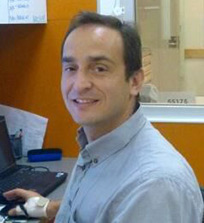
- Especialista en Anestesiología
- Supervisor de entrenamiento en Anestesia, John Hunter Hospital/Royal Newcastle Centre, Australia
- Instructor en Simulación en HNE Simulation Centre, Newcastle, Australia
- Faculty, Institute for Medical Simulation, Boston, MA, USA
Sacha Muller-BottiMDJohn Hunter HospitalSacha Muller-Botti MD is a specialist in Anesthesiology, originally from Chile. Currently he is a Staff Specialist and Supervisor of Training in Anaesthesiology at John Hunter Hospital, Newcastle, Australia. He is a conjoint lecturer for the Faculty of Medicine, University of Newcastle, and he is an instructor and part of the faculty of Hunter New England Simulation Centre, Newcastle, Australia. He is also on the faculty of the Center for Medical Simulation in Boston.
-
Andres NavedoBoston Children's Hospital+
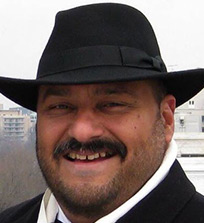
- Senior Associate in Perioperative Anesthesia
- Instructor in Anesthesia, Harvard Medical School
Andres NavedoMDBoston Children's HospitalDr. Navedo is a Senior Associate in Perioperative Anesthesia at Boston Children’s Hospital. He is an Instructor in Anaesthesia at Harvard Medical School and is on the faculty of the Center for Medical Simulation in Boston.
-
Britlyn OrgillMassachusetts General Hospital+
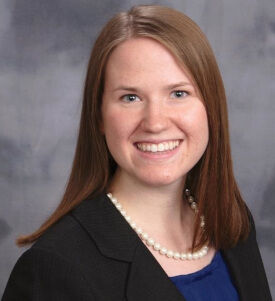 Britlyn OrgillMDMassachusetts General Hospital
Britlyn OrgillMDMassachusetts General Hospital -
Guillermo OrtizBosque University+

- Director Ejecutivo, Instituto de Simulación Médica (INSIMED), Bogotá, Colombia
- Jefe Cuidados Intensivos del Hospital Santa Clara, Bogotá, Colombia
- Director del Posgrado de Medicina Interna y Neumología de la Universidad del Bosque, Bogotá, Colombia
- Faculty, Institute for Medical Simulation, Boston, MA, USA
Guillermo OrtizMDBosque UniversityGuillermo Ortiz, MD, is a Physician in Pulmonary and Critical Care Medicine and Director of the program for Internal and Pulmonary Medicine at Bosque University, Bogotá, Colombia. He is also the Director of the Critical Care Department at Santa Clara Hospital in Bogotá, Colombia, as well as the Executive Director of INSIMED (Instituto de Simulacion Clinica). Dr. Ortiz is one of the world’s leading experts in the identification and management of sepsis. He completed a year-long Simulation Fellowship at the Center for Medical Simulation. He is on the faculty of the Center for Medical Simulation.
-
John PawlowskiBeth Israel Deaconess Medical Center+

- Assistant Professor of Anaesthesia
- Department of Anesthesia, Critical Care and Pain Medicine
- Beth Israel Deaconess Medical Center
- Co-Director, Simulation and Skills Center
- Carl J. Shapiro Simulation and Skills Center (SASC)
- Director, Thoracic Anesthesia
- Assistant Professor, Anesthesiology
- Harvard Medical School
John PawlowskiMD, PhDBeth Israel Deaconess Medical CenterJohn Pawlowski is the clinical director of Thoracic Anesthesia at the Beth Israel Deaconess Medical Center. He directs the anesthetic care of approximately 1,500 cases per year by the Division of Thoracic Surgery and Interventional Pulmonology. He has used medical simulation in the teaching of medical students, residents and faculty since 1993. Since 2010, Dr. Pawlowski has been co-director of the Shapiro Simulation and Skills Center at BIDMC.
He is a co-director of the Pharmacology course at Harvard Medical School. He has published and presented at local and national meetings, conducted workshops and participated in numerous telesimulations. John sits on the Education Committee and the MOCA Endorsed Center Committee of the Society for Simulation in Healthcare. He is a Past President of the Society for Technology in Anesthesia.
-
May Pian-SmithMassachusetts General Hospital+

- Associate Professor of Anesthesia
- Massachusetts General Hospital
May Pian-SmithMDMassachusetts General HospitalDr. Pian-Smith’s clinical specialty is obstetric anesthesia. Much of her clinical work and investigation centers on improving the healthcare of women, but within that realm projects have spanned a wide spectrum from studying markers of endothelial dysfunction in pre-eclamptics to the role of alternative therapies for the management of menopausal symptoms.
- In addition to enjoying the fruits of direct patient care, her work at Harvard Medical School has provided wonderful opportunities to help shape the future of our specialty through innovations in education, including:\
- Developing techniques to engage the adult learner
- Promoting deliberate practice and personal reflection in medical training
- Using simulation to create controlled and experiential learning opportunities
- Promotion of patient safety practices through improved communication and interdisciplinary collaboration
- A leadership role in the recruitment of our trainees, with the goal of enhancing an extraordinary, talented and diverse community
- Tangible ways to contribute to the support, development and retention of talented and diverse faculty in the Harvard Medical
- School community at large
-
Suresh PillaiNational University Hospital+
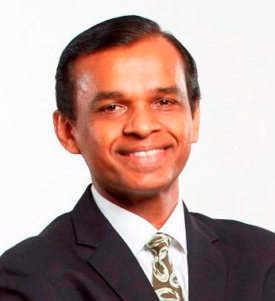
- Director, Centre for Healthcare Simulation, National University Hospital
- Senior Consultant, Emergency Medicine Department, National University Hospital
- Advisor Disaster Site Medical Command
- Associate Professor, Yong Loo Lin School of Medicine
Suresh PillaiMBBS, FRCS Ed, PBMNational University HospitalCl Assoc Prof Suresh Pillai, MBBS (S’pore), FRCS Ed(A&E), PBM is a Senior Consultant in the Emergency Medicine Department of National University Hospital. After his basic MBBS qualifications from the National University of Singapore, he obtained his Fellowship from the Royal College of Surgeons of Edinburgh in Accident & Emergency Medicine. He was awarded a Health Manpower Development Plan Award from MOH for a Fellowship in Toxicology at the San Francisco Poison Control Centre in 1999. He was also awarded the Public Service Medal (PBM) at the 2005 National Day Awards for his efforts in organizing and spearheading humanitarian medical relief missions to Indonesia and Sri Lanka during the catastrophic 2004 Indian Ocean Earthquake and Tsunami.
Assoc Prof Suresh’s passion and strengths lie in teaching medical students at the Undergraduate Level, Medical Trainees at the post-graduate Basic Specialist Trainee (BST) and the Advanced Specialist (AST) levels and nursing students at the Basic and Advance Diploma Level. Assoc Prof Suresh is also actively involved in preparing local and overseas candidates for the MRCS / MMed (A&E) and now the MCEM exams, for which he also serves as an examiner and core faculty. He is also an examiner for the Emergency Medicine Exit Examinations for Advanced Specialist Trainees.
His teaching abilities have garnered him several Awards including The Dean’s Award for Excellence in Undergraduate Teaching in 2007, the Medical Society Teacher’s Day Award in 2008 and voted one of the top ten tutors in the Yong Loo Lin School of Medicine in 2009. He was the Departmental Director in Undergraduate Emergency Medical Education and was responsible for organizing the widely popular undergraduate curriculum in Emergency Medicine at the Yong Loo Lin School of Medicine. Under his stewardship, the Emergency Medicine Posting has consistently emerged as one of the top three undergraduate disciplines as voted by medical students. He is currently actively involved in the review of the medical undergraduate curriculum and simulation training at the Yong Loo Lin School of Medicine. He is also involved actively in Life Support Training both at NUH and NUS and is the Basic Cardiac Life Support (BCLS) Course Director for both institutions. He is also an instructor for the Advanced Trauma Life Support (ATLS) and Advanced Cardiac Life Support (ACLC) Courses. His other areas of active involvement include Disaster Preparation and Readiness both at the hospital, national and international levels.
He is the Disaster Coordinator for the Emergency Department and NUH and has also served several terms as Deputy Commander of the Disaster Site Medical Command HQ of MOH that is responsible for coordinating medical teams at the site of any civil emergency or disaster in Singapore.
He is a lecturer and trainer at the HazMat Medical Life Support Course conducted by MOH at the Institute of Medical Simulation and Education. He has also coordinated the development of the NUHS Humanitarian Medical Relief Volunteer Programme. He has also been seconded to the Ministry of Health as Project Consultant and has developed national medical response plans for radiation emergencies in Singapore.
He has been appointed Chairman of the Medical Services Subcommittee of the APEC (Asia Pacific Economic Cooperation) Meetings in Singapore in 2008-2009 that is responsible for organizing medical support for local and foreign delegates including Ministers and Heads of State and Government during the APEC Conferences. He has also been appointed Deputy Chairman of the Medical Services Subcommittee for the inaugural 1st Youth Olympics in Singapore in 2010.
He also served as a committee member of the World Association of Disaster and Emergency Medicine Committee on Education and Training in Disaster Medicine. Assoc Prof Suresh has also co-authored several chapters in the “Guide to Essentials in Medicine” (McGraw Hill Publishers).
-
Dan RaemerChief Curiosity Officer emeritus+
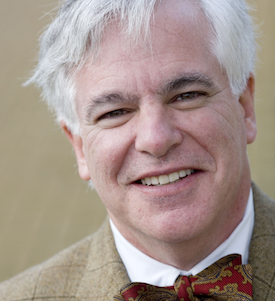
- Chief Curiosity Officer emeritus, Center for Medical Simulation
Dan RaemerPhDChief Curiosity Officer emeritusDan Raemer has developed a special expertise in teamwork and crisis management over the past 20 years at the Center for Medical Simulation. He is particularly interested in the art of debriefing and is frequently called upon to facilitate multidisciplinary teamwork sessions in a variety of specialty areas such as operating rooms, intensive care, emergency, endoscopy, and labor and delivery suites.
In 2003, Dan received a unique award from the Harvard Department of Anesthesia for “excellence in teaching.” Using simulation as a research tool to investigate healthcare workers’ behaviors and thought processes has been his most enduring passion. Dan has published work in these areas and has given numerous keynote addresses for specialty societies and other healthcare organizations on simulation as it has blossomed in the last several years.
He has worked globally to establish the International Meeting on Medical Simulation, is the founding trustee and a Past President of the Society for Simulation in Healthcare (SSH). In 2008, Dan received a “Lifetime Achievement Award” from SSH for his contributions to the field. He is also a Past President of the Society for Technology in Anesthesia.
Dan earned his doctorate in bioengineering from the University of Utah and he worked as a researcher for many years at Brigham and Women’s Hospital and Massachusetts General Hospital in the Anesthesia and Critical Care Departments. In addition to his publications related to simulation practice and research, he has written extensively on monitoring devices and has a number of patents for clinically useful devices and technologies.
-
Laura RockHarvard Medical School+
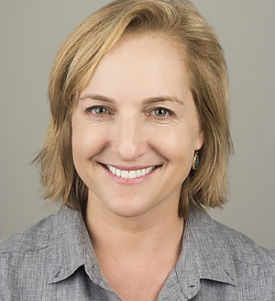
- Especialista en Cuidados Críticos y Directora de Simulación del Departamento de Medicina en el Beth Israel Deaconess Medical Center, Boston
- Faculty, Center for Medical Simulation, Boston
- Assistant Professor in Medicine, Harvard Medical School
- Director of the Simulation Core Faculty for the Department of Medicine, Beth Israel Deaconess Medical Center
Laura RockMDHarvard Medical SchoolDr. Rock is an Instructor of Medicine at Harvard Medical School and an attending physician in the Department of Medicine, Division of Pulmonary and Critical Care, at the Beth Israel Deaconess Medical Center in Boston. Dr. Rock received a BA from Carleton College and an MD from the Columbia University College of Physicians & Surgeons. She completed residency at Stanford University and a fellowship at Boston Medical Center.
Dr. Rock’s professional activities include attending in the Medical Intensive Care Unit, teaching and communication education research. As the Director of the Simulation Core Faculty in the Department of Medicine, she designs and teaches numerous courses for learners ranging from students to faculty, including: communication with family of critically ill patients, interprofessional code leadership and team training, “rapid response training,” individual training in clinical decision making and communication, central line insertion and pulmonary procedures.
She is a co-investigator and faculty director for a simulation-based course to teach residents leadership and communication skills for family meetings in the Medical Intensive Care Unit (MICU). The course, and related research project, emphasizes strategies to improve empathic behaviors and a patient-centered approach. She was selected as the 2011-2012 Putnam Scholar, a scholarship of the American Academy on Communication in Healthcare.
Dr. Rock is active in Harvard Medical School courses as a tutorial leader and preceptor as well as integrating simulation into preclinical pathophysiology courses. She received the Harvard Medical School Excellence in Tutoring Award in 2009, an honor granted by students’ evaluations. Other responsibilities include teaching medicine house staff and critical care fellows in the medical intensive care unit. Dr. Rock has several educational interests, including the use of high-fidelity simulation and providing feedback with an emphasis on curiosity and respect in the simulation and clinical setting. Dr. Rock’s clinical practice involves serving as the attending physician in the MICU. She is also a faculty member for the Center for Medical Simulation.
-
Rodrigo RubioAmerican British Cowdray Medical Center+
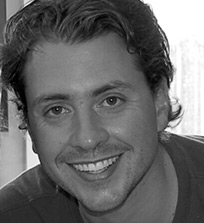
- Especialista en Anestesiología
- Coordinador Académico de Simulación, Facultad de Medicina, Universidad Nacional Autónoma de México
- Profesor Asociado, Anestesiología, Universidad Nacional Autónoma de México
- Coordinador de Anestesia, Centro de Simulación, American British Cowdray Medical Center, México City
- Faculty, Institute for Medical Simulation, Boston, MA, USA
Rodrigo RubioMDAmerican British Cowdray Medical CenterDr. Rubio is an anesthesiologist from Mexico City. He is director of the simulation program of the anesthesia department at the American British Cowdray Medical Center. He is also simulation education director at the National Autonomous University of Mexico (UNAM) where he is responsible for faculty development, academic program development and establishing relations with other simulation centers around the world.
Rodrigo completed a simulation fellowship at the University of Western Ontario in London, Ontario, Canada. Rodrigo has an interest in the role of realism in simulation and conducts research on this topic. As an accomplished magician, he uses insights and techniques from this area to help instructors create innovative simulation scenarios. He is a co-facilitator for the Center for Medical Simulation.
-
Maria RudolphIndependent Consultant+
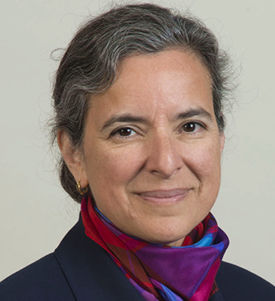
- Consultant, Center for Medical Simulation
Maria RudolphMDIndependent ConsultantMaria D. Davila Rudolph is an independent consultant in simulation-based medical education and research. She received her M.D. from the University of Cincinnati College of Medicine and completed a residency in Psychiatry at the University of Maryland. She brings her understanding of human behavior to the field of healthcare education to support both developing and established healthcare providers in acquiring the knowledge, skills, and attitudes that reduce errors and improve patient outcomes.
Dr. Rudolph’s research focuses on teamwork, psychological safety, and empathy, with a special interest in the theory and practice of effective individual and group feedback in order to achieve educational goals and behavioral change. She has worked as simulation research consultant at the UCLA Simulation Center and at the Center for Medical Simulation.
Dr. Rudolph received her A.B. in French Literature from Bryn Mawr College. She is fluent in French, Spanish, and English.
Dr. Rudolph is integral to supporting the CMS team with the MGHIHP Simulation Clerkship Program. Dr. Rudolph supported the translations of the Debriefing Assessment for Simulation in Healthcare© (DASH) into both Spanish and French. She was integral to the process of understanding the user experience as we developed our interprofessional virtual campus under a grant from the Josiah Macy Junior Foundation.
-
Tonya SchneidereithSIMPL Simulation, LLC+
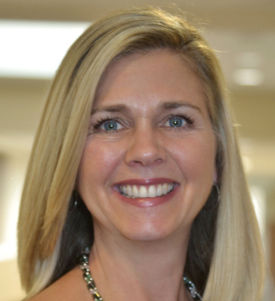
- Chief Executive Officer and Managing Partner, SIMPL Simulation, LLC, Brooklandville, MD
- Faculty, Center for Medical Simulation, Boston, MA, USA
Tonya SchneidereithPhD, CRNP, PPCNP-BC, CPNP-AC, CNE, CHSE-A, ANEF, FSSH, FAANSIMPL Simulation, LLCTonya Schneidereith is the Chief Executive Officer of the simulation consulting company, SIMPL Simulation, LLC. She was appointed as a founding member of the National Organization of Nurse Practitioner Faculties Simulation Committee and Associate Editor for the Simulation guidelines and best practices for Nurse Practitioner programs. In 2021, she was Editor for the Annual Review of Nursing Research: Healthcare Simulation. She holds certifications as a Pediatric Primary Care Nurse Practitioner (PPCNP-BC), Pediatric Acute Care Nurse Practitioner (CPNP-AC), Certified Nurse Educator (CNE), and Advanced Simulation Healthcare Educator (CHSE-A). She is a Fellow in the Academy of Nursing Education (ANEF), Society for Simulation in Healthcare Academy (FSSH), and American Academy of Nursing (FAAN). Her research interests utilize simulated settings to investigate safe medication administration practices in prelicensure nursing students.
Learn more about SIMPL Simulation, LLC.
-
Sasa SopkaAachener interdisciplinary Trainingcenter for medical Education and Patient Safety – AIXTRA+
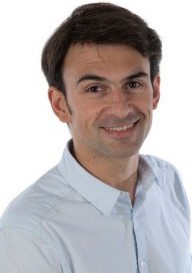
- Executive Director, Aachener interdisciplinary Trainingcenter for medical Education and Patient Safety – AIXTRA
- Anesthesiology and ICU Physician, University Hospital in Aachen, Germany
Sasa SopkaMD, MMEAachener interdisciplinary Trainingcenter for medical Education and Patient Safety – AIXTRASasa Sopka, MD, MME is the Executive Director of the Aachener interdisciplinary Trainingcenter for medical Education and Patient Safety – AIXTRA and a Anesthesiology and ICU Physician at the University Hospital in Aachen, Germany. He trained at the University Hospital in Aachen and finished his specialization in Anesthesiology, Intensive Care Medicine and Emergency Medicine there. He is the founder of AIXTRA and head of the center for more than 12 years. Since 2008 Sasa is involved in many different projects concerning undergraduate and postgraduate education in Germany on the national level. He serves as the chair of the educational committee/ German national society of anesthesiologist, Chair – committee for Simulation and Emergency Medicine/German national society for medical education. Since 2012 he serves as visiting faculty at the Harvard Macy Institute, Boston, MA.
-
Sugantha SundarBeth Israel Deaconess Medical Center+

- Assistant Professor of Anesthesia
- Department of Anesthesia, Critical Care and Pain Medicine
- Beth Israel Deaconess Medical Center
- Assistant Professor, Anesthesiology
- Harvard Medical School
- Program Director, Fellowship in Adult Cardiothoracic Anesthesia
- Beth Israel Deaconess Medical Center
Sugantha SundarMBBSBeth Israel Deaconess Medical CenterDr. Sundar is a cardiac anesthesiologist at the Beth Israel Deaconess Medical Center. She is the Director of the Adult Cardiothoracic Anesthesia Fellowship, an ACGME approved fellowship. Dr. Sundar completed her medical school training in Chennai, India. She subsequently trained and board certified as an Obstetrician and Gynecologist in the UK. Dr. Sundar joined BIDMC as an anesthesia resident in 2000 and completed a cardiac anesthesia fellowship. She was chief resident and earned the Medical Student Teacher of the Year Award.
Her interest in teaching and educating residents won her the Leonard Bushnell Award for Innovations in Teaching in her department. She has developed a simulator-based curriculum in cardiac anesthesia as part of the Rabkin Fellowship. Some of her research interests include genomic variations and their impact on the cardiac surgical patient, impact of low tidal volume ventilation in cardiac surgical patients, and impact of age of red cell in the cardiac surgical patient. Dr. Sundar also serves as the Resource Faculty for her department and is a core faculty member of the Simulation and Skills Center at BIDMC.
-
Julian van DijkVincent’s Hospital+
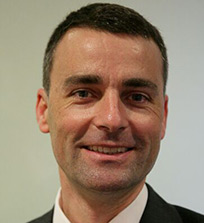
- Simulation Coordinator
- St. Vincent's Hospital
Julian van DijkRN, MHPEVincent’s HospitalJulian Van Dijk has a Bachelor of Applied Science (Nursing) from RMIT University and is currently completing a Master’s in Health Professional Education at Monash University, Melbourne. He is the current Simulation Coordinator at St. Vincent’s Hospital, Melbourne, and is responsible for operations, program and faculty development. Julian has extensive experience in using simulation across nursing, medicine and allied health disciplines.
His primary research interests are instructor teaching practices, debriefing and the integration of simulation into health education curriculum. Julian is the current scientific convener for SimHealth 2012 and is a current executive member of the Australian Society for Simulation.
-
Susan VassalloMassachusetts General Hospital+

- Assistant Professor of Anesthesia
- Massachusetts General Hospital
Susan VassalloMDMassachusetts General HospitalDr. Vassallo is a board certified anesthesiologist affiliated with Massachusetts Eye & Ear Infirmary and Massachusetts General Hospital. She is an Assistant Professor of Anesthesia at Massachusetts General Hospital. Dr. Vassallo graduated from Tufts University School of Medicine in 1985 and has been in practice for 30 years. She completed a residency at Massachusetts General Hospital.